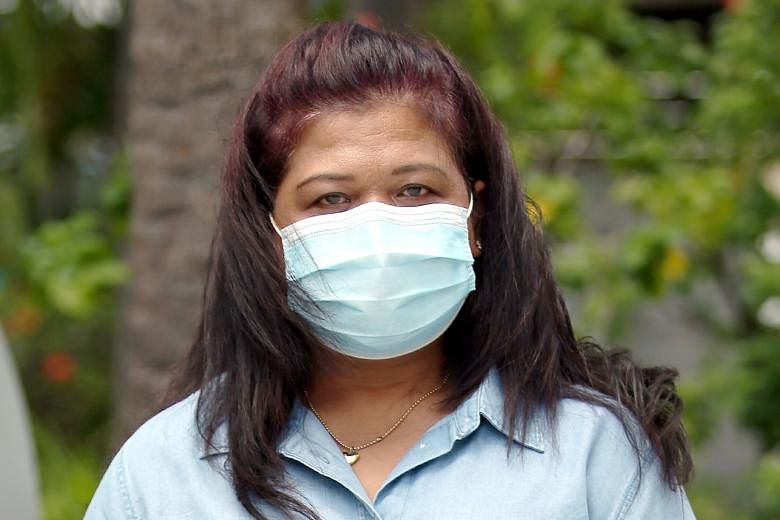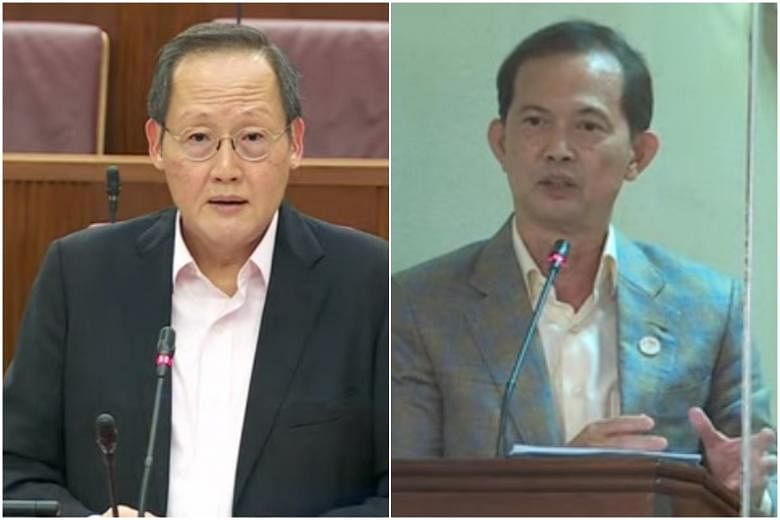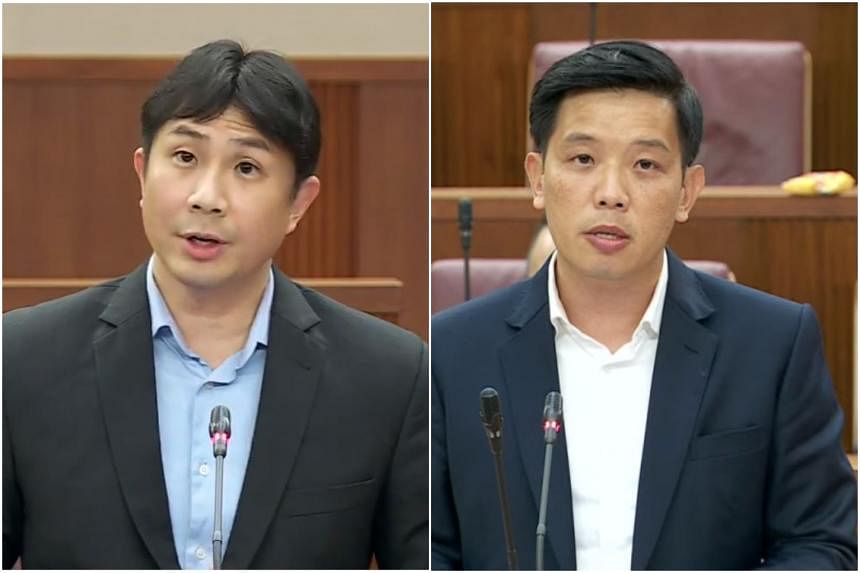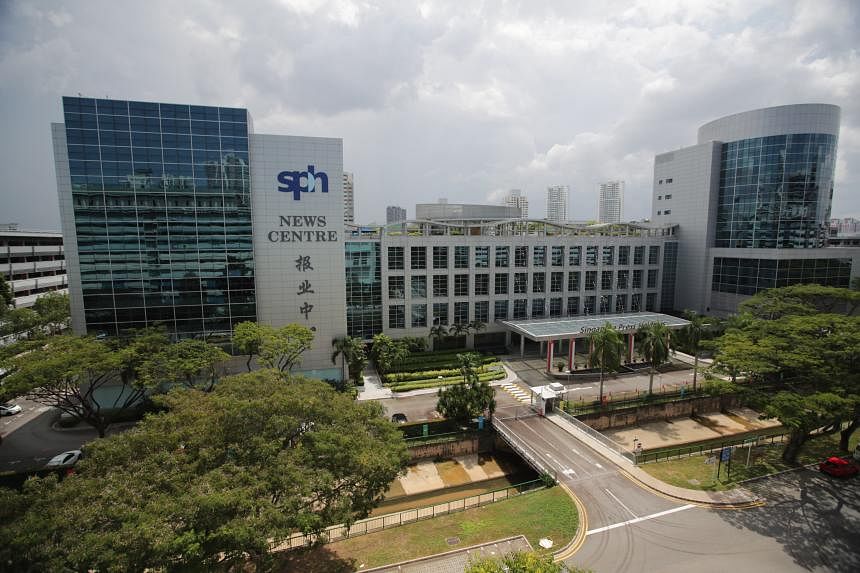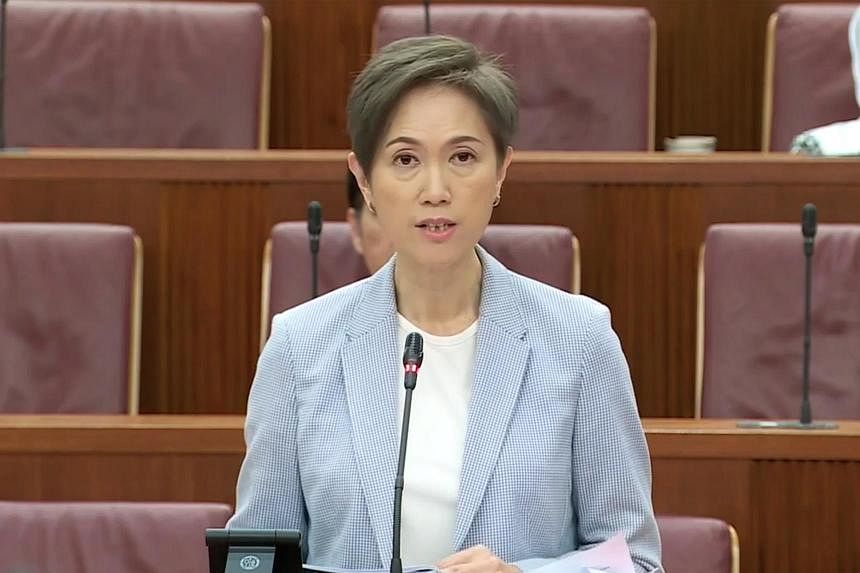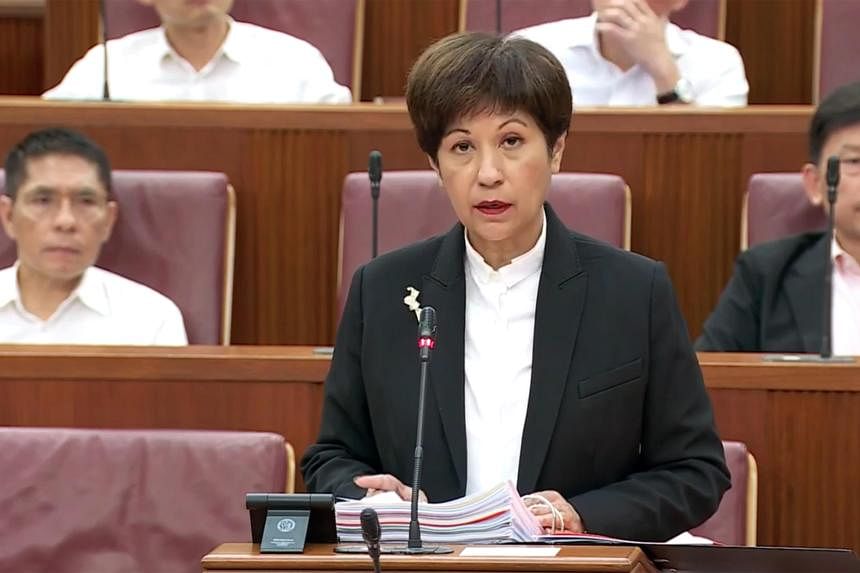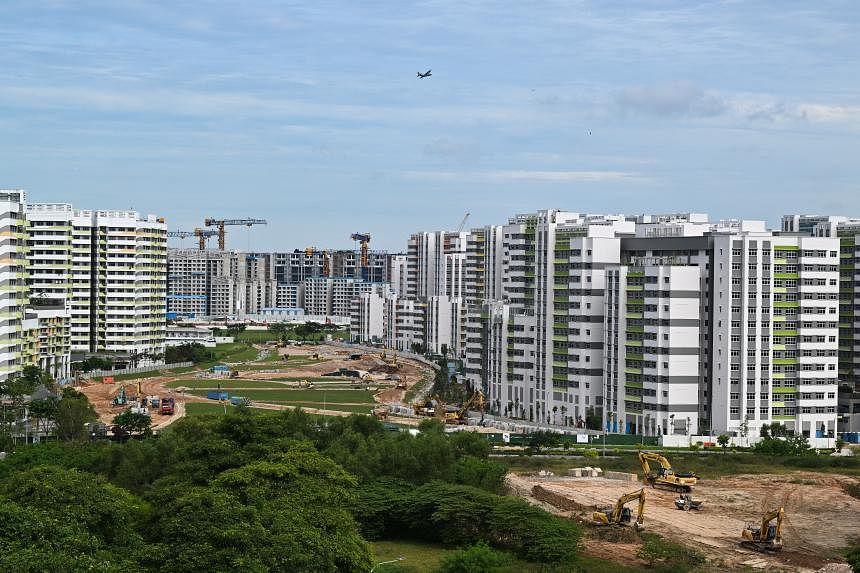Because the PAP MPs will never ask sensitive (sensitive to the PAP, that is) questions that Singaporeans want to ask.
In the years since CECA was signed, did any PAP MPs raise the issues of the terms of the CECA agreement, too many foreign talent flooding into Singapore, how many Singaporean PMETs lost their jobs to the foreign influx of PMETs?
Would the PAP government release more data if the opposition had not continue to nip at the issue?

Leader of the Opposition Pritam Singh also asked about strengthening the enforcement arm of the Tripartite Alliance for Fair and Progressive Employment Practices.

Hariz Baharudin
July 6, 2021
SINGAPORE - The misunderstandings and unhappiness over the Singapore-India Comprehensive Economic Cooperation Agreement (Ceca) could have been addressed and nipped in the bud if the government had released more information earlier, suggested Leader of the Opposition Pritam Singh.
The Workers' Party chief made this point on Tuesday (July 6) during the debate after Health Minister Ong Ye Kung and Manpower Minister Tan See Leng gave ministerial statements on Singapore's free trade agreements (FTAs) and foreign manpower policies.
He noted that in 2016, fellow WP MP Mr Leon Perera had asked the Manpower Minister for the number of Intra-Corporate Transferees (ICTs) working in Singapore through Ceca. The response was the ministry does not release data on the breakdown of foreign manpower by nationality.
In February, the Government disclosed that the number of ICTs working in Singapore was around 5 per cent of all Employment Pass holders, in response to Progress Singapore Party Non-Constituency MP Leong Mun Wai.
On Tuesday, Dr Tan revealed that ICTs from India accounted for 500 of the 4,200 transferees in 2020.
Said Mr Singh: "If this information had been made known earlier, it does occur to me whether a lot of the misunderstanding, the reaction we see on Ceca could have been addressed and actually nipped in the bud.
"And so I hope the Government understands that with more information, actually, we can hold the line better in terms of some of these discussions moving into a realm of xenophobia and so forth."
Mr Singh was referring to misconceptions that have swirled around Ceca and how it purportedly allows the unconditional entry of Indian professionals into Singapore, which have been linked to an undercurrent of resentment toward immigrant Indians.
One point of unhappiness was over ICTs - overseas employees at an MNC who have worked for at least a year in the company, before being posted to a branch or subsidiary in Singapore.
Companies that want to fill a role with an intra-corporate transferee are exempted from the Fair Consideration Framework requirement that requires firms to advertise jobs on MyCareersFuture.sg, before submitting EP and S Pass applications. But the transferee still has to meet the prevailing work pass criteria before they are allowed to work in Singapore.
In their statements, both ministers debunked the various false claims surrounding Ceca.
Responding to Mr Singh, Mr Ong said the Government is not always at liberty to disclose data, some of which is classified or secret. He agreed that it is better to provide some information promptly.
"And especially, as you say, when it concerns issues like racism or xenophobia, it's much better to quell it early," said Mr Ong.
Mr Singh also asked about strengthening the enforcement arm of the Tripartite Alliance for Fair and Progressive Employment Practices (Tafep), an issue he had raised in Parliament last August.
Dr Tan replied that MOM is reviewing its existing frameworks, and such a suggestion was not something that only the WP had made.
He said a number of MPs, including Mr Patrick Tay (Pioneer) and Mr Louis Ng (Nee Soon GRC), have floated this too.
"The assurance I want to give to the House, to everyone who has raised it and who's concerned about this, is to allow myself, together with a team… (and) tripartite partners to go deep, look at all the different implications, (and) look at also the various options that we have to see how we can strengthen it," said Dr Tan.
In the years since CECA was signed, did any PAP MPs raise the issues of the terms of the CECA agreement, too many foreign talent flooding into Singapore, how many Singaporean PMETs lost their jobs to the foreign influx of PMETs?
Would the PAP government release more data if the opposition had not continue to nip at the issue?
Misunderstandings over Ceca could have been nipped in the bud if Govt released more data earlier: Pritam

Leader of the Opposition Pritam Singh also asked about strengthening the enforcement arm of the Tripartite Alliance for Fair and Progressive Employment Practices.

Hariz Baharudin
July 6, 2021
SINGAPORE - The misunderstandings and unhappiness over the Singapore-India Comprehensive Economic Cooperation Agreement (Ceca) could have been addressed and nipped in the bud if the government had released more information earlier, suggested Leader of the Opposition Pritam Singh.
The Workers' Party chief made this point on Tuesday (July 6) during the debate after Health Minister Ong Ye Kung and Manpower Minister Tan See Leng gave ministerial statements on Singapore's free trade agreements (FTAs) and foreign manpower policies.
He noted that in 2016, fellow WP MP Mr Leon Perera had asked the Manpower Minister for the number of Intra-Corporate Transferees (ICTs) working in Singapore through Ceca. The response was the ministry does not release data on the breakdown of foreign manpower by nationality.
In February, the Government disclosed that the number of ICTs working in Singapore was around 5 per cent of all Employment Pass holders, in response to Progress Singapore Party Non-Constituency MP Leong Mun Wai.
On Tuesday, Dr Tan revealed that ICTs from India accounted for 500 of the 4,200 transferees in 2020.
Said Mr Singh: "If this information had been made known earlier, it does occur to me whether a lot of the misunderstanding, the reaction we see on Ceca could have been addressed and actually nipped in the bud.
"And so I hope the Government understands that with more information, actually, we can hold the line better in terms of some of these discussions moving into a realm of xenophobia and so forth."
Mr Singh was referring to misconceptions that have swirled around Ceca and how it purportedly allows the unconditional entry of Indian professionals into Singapore, which have been linked to an undercurrent of resentment toward immigrant Indians.
One point of unhappiness was over ICTs - overseas employees at an MNC who have worked for at least a year in the company, before being posted to a branch or subsidiary in Singapore.
Companies that want to fill a role with an intra-corporate transferee are exempted from the Fair Consideration Framework requirement that requires firms to advertise jobs on MyCareersFuture.sg, before submitting EP and S Pass applications. But the transferee still has to meet the prevailing work pass criteria before they are allowed to work in Singapore.
In their statements, both ministers debunked the various false claims surrounding Ceca.
Responding to Mr Singh, Mr Ong said the Government is not always at liberty to disclose data, some of which is classified or secret. He agreed that it is better to provide some information promptly.
"And especially, as you say, when it concerns issues like racism or xenophobia, it's much better to quell it early," said Mr Ong.
Mr Singh also asked about strengthening the enforcement arm of the Tripartite Alliance for Fair and Progressive Employment Practices (Tafep), an issue he had raised in Parliament last August.
Dr Tan replied that MOM is reviewing its existing frameworks, and such a suggestion was not something that only the WP had made.
He said a number of MPs, including Mr Patrick Tay (Pioneer) and Mr Louis Ng (Nee Soon GRC), have floated this too.
"The assurance I want to give to the House, to everyone who has raised it and who's concerned about this, is to allow myself, together with a team… (and) tripartite partners to go deep, look at all the different implications, (and) look at also the various options that we have to see how we can strengthen it," said Dr Tan.
Last edited:










